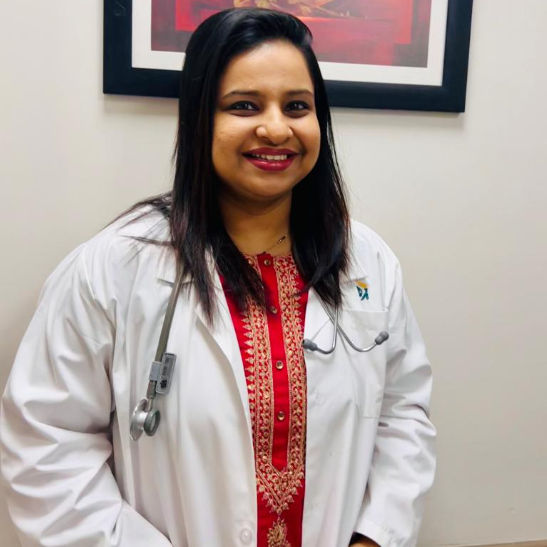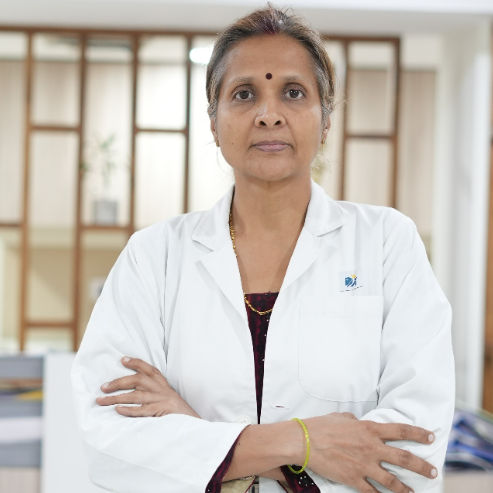Pregnancy Bloating: Causes, Relief, and When to See a Doctor
Pregnancy bloating is common but uncomfortable. Learn what causes it in each trimester, how to relieve it with diet and lifestyle changes, how to tell bloating from a baby bump, and when to call your doctor.


Introduction
That uncomfortably full, tight feeling in your abdomen—bloating is one of pregnancy's most common, yet least glamorous, early guests. While often associated with the later baby bump, bloating can appear surprisingly early, sometimes even before a positive test. This sensation is your body's response to the incredible changes happening within. Understanding what leads to signs of pregnancy bloating is the first step toward finding comfort. This guide will demystify the causes, from powerful hormones to your expanding uterus, and provide practical, doctor-approved prevention tips and relief strategies. Whether you're in your first trimester or your third, we'll help you navigate this bubbly challenge and know when it's time to seek professional advice.
What Causes Bloating During Pregnancy?
Bloating during pregnancy isn't caused by just one thing; it's a perfect storm of hormonal shifts and physical changes. Your body is working hard to create a nurturing environment for your baby, and these processes can have some gassy side effects.
The Role of Progesterone
The primary culprit behind early pregnancy bloating is the hormone progesterone, which surges after conception. Progesterone is essential for maintaining a healthy pregnancy as it relaxes the muscles throughout your body, including those in your gastrointestinal (GI) tract. This relaxation slows down digestion significantly. While this allows more time for nutrients to be absorbed into your bloodstream and reach your baby, it also means food travels more slowly through your intestines. This slower transit time allows gas to build up, leading to that familiar feeling of bloating, cramping, and excess gas.
Your Growing Uterus
As your pregnancy progresses, the cause of bloating becomes more physical. Your uterus, which is normally about the size of a pear, expands to accommodate your growing baby. This expansion puts increasing pressure on your surrounding organs, including your stomach and intestines. This compression can trap gas and slow digestion even further, contributing to feelings of fullness and bloating after even a small meal. This is why bloating in early pregnancy is often more hormonally driven, while later bloating can be a mix of hormones and physical pressure.
Slower Digestion and Constipation
The slowed digestion caused by progesterone often leads to constipation, which is a major contributor to bloating. When stool moves slowly through the colon, your body has more time to reabsorb water from it, making it harder and drier. This backlog can cause significant abdominal distension and discomfort. Furthermore, the iron in your prenatal vitamins, while crucial, can exacerbate constipation for some women, creating a cycle of bloating.
Early Pregnancy Bloating vs. Later Trimester Bloating
It's helpful to understand how bloating evolves throughout your pregnancy journey, as the causes and sensations can differ.
First Trimester Bloating: This is primarily the "hormonal bloat." You might feel bloated even if you haven't gained any weight or shown a bump. It can feel like a persistent version of premenstrual bloating—generalized, uncomfortable, and often accompanied by gas. This type of pregnancy bloating first trimester experience is extremely common.
Second & Third Trimester Bloating: Here, the physical pressure of your growing uterus takes center stage. Bloating after eating becomes more pronounced because your stomach has less room to expand. You might feel full after just a few bites. While progesterone is still at work, the physical constraints play a larger role. This is also when differentiating between bloating and your actual baby bump becomes a common question.
Effective Tips to Prevent and Reduce Pregnancy Bloating
You don't have to just suffer through it. Several effective strategies can help you manage and reduce bloating when pregnant.
Consult a Gynaecologist for Personalised Advice
Dietary Adjustments for a Happier Gut
What you eat is your most powerful tool against bloating.
Foods to Embrace:
Fiber-Rich Foods: Combat constipation by gradually increasing your intake of high-fiber foods like pears, apples, berries, carrots, oats, and whole grains. Increase fiber slowly and with plenty of water to avoid more gas.
Potassium-Rich Foods: Potassium helps counter water retention, a component of bloating. Bananas, avocados, and spinach are excellent choices.
Water: This is the most important tip. It seems counterintuitive, but staying well-hydrated is crucial for preventing constipation and helping your system process fiber effectively. Aim for 8-10 glasses a day.
Foods to Limit or Avoid:
Gas-Producing Foods: Be mindful of classic culprits like beans, cabbage, onions, broccoli, and fried foods. You don't need to eliminate them entirely, but notice how your body reacts.
Carbonated Drinks: The bubbles in sodas and sparkling water are literally gas going straight into your digestive system.
Artificial Sweeteners: Sorbitol and other sugar alcohols are notorious for causing gas and bloating.
Salt: High sodium intake encourages water retention, amplifying that puffy, bloated feeling.
Lifestyle and Habit Changes
Eat Small, Frequent Meals: Instead of three large meals, opt for five or six smaller ones. This prevents overloading your already compressed stomach.
Eat Slowly and Chew Thoroughly: This reduces the amount of air you swallow (which contributes to gas) and kick-starts the digestive process.
Stay Active: Gentle, regular exercise like walking or prenatal yoga can stimulate digestion and help move gas through your system.
Wear Comfortable Clothes: Tight waistbands put pressure on your abdomen. Opt for maternity wear or loose, comfortable clothing.
Consider Your Posture: Sitting up straight while eating and for a while after gives your stomach more room and can aid digestion.
Is It Bloating or a Baby Bump? How to Tell the Difference
This is a very common question, especially for first-time moms in the early second trimester. Here’s how to tell:
The Bloat: Often comes and goes. It might be worse in the evening, especially after a meal, and feel better in the morning. It feels soft and can be accompanied by gas pains or discomfort.
The Bump: Is a firm, rounded hardness that grows consistently over weeks. It doesn't disappear overnight or after passing gas. A true baby bump typically becomes more prominent and permanent starting around weeks 12-16 for second-time moms and slightly later for first-time moms.
When Should Bloating During Pregnancy Be a Concern?
While bloating is usually normal, it can sometimes be a sign of something more serious. Contact your doctor or seek immediate medical attention if your bloating is:
Severe, persistent, and doesn't come and go.
Accompanied by intense abdominal pain or cramping.
Paired with severe nausea and vomiting.
Associated with significant swelling in your hands, face, or feet, especially if it comes on suddenly. This could be a sign of preeclampsia.
Causing a rapid, large increase in weight over a few days (again, a potential sign of preeclampsia).
If you experience any of these concerning symptoms, it's crucial to consult a doctor. You can connect with a specialist online quickly through Apollo24|7 for an immediate evaluation.
Conclusion
Pregnancy bloating, while uncomfortable, is a typical part of the journey for many expectant mothers. It's a tangible sign of the profound hormonal and physical changes your body is undergoing to support your growing baby. By understanding its causes—primarily the hormone progesterone and your expanding uterus—you can feel empowered to take simple steps toward relief. Focusing on a bloat-friendly diet rich in fiber and water, adopting new eating habits, and staying active can make a significant difference in your comfort levels. Remember, listen to your body. While most bloating is harmless, never hesitate to seek professional advice if your symptoms feel severe or are accompanied by pain. If your condition does not improve after trying these methods, or if you have any concerns, book a physical visit to a doctor with Apollo24|7 for personalized guidance and peace of mind throughout your pregnancy.
FAQs About Pregnancy Bloating
Q1. How early in pregnancy does bloating start?
Bloating can be one of the very first signs of pregnancy, often appearing within the first few weeks after conception, even before a missed period, due to the rapid rise in progesterone.
Q2. Can pregnancy bloating be painful?
Yes, it can cause discomfort ranging from a feeling of tightness and fullness to sharp, crampy gas pains. The trapped gas and intestinal pressure are the common causes of this pregnancy gas pain.
Q3. What can I take for gas and bloating during pregnancy?
Always consult your doctor before taking any medication. Simethicone (found in brands like Gas-X) is generally considered safe during pregnancy as it works locally in the gut and isn't absorbed into the bloodstream. However, professional medical advice is essential.
Q4. Does bloating mean I'm having a boy or a girl?
No, there is no scientific evidence linking bloating to the baby's sex. The amount of bloating you experience is related to your hormones, body type, diet, and other individual factors, not the gender of your baby.
Q5. Why is my bloating worse at night?
Bloating often worsens as the day goes on because gas has had more time to build up in your system from the food and drinks you've consumed throughout the day. Lying down can also make it harder for gas to pass, increasing the feeling of pressure.
Consult a Gynaecologist for Personalised Advice
Consult a Gynaecologist for Personalised Advice

Dr. Karuna Ratwani
Obstetrician and Gynaecologist
11 Years • MBBS, MS( Obstetrics & Gynaecology), F.MAS, FICRS Advanced Diploma in Minimal Access surgery Fellow of International College of Robotic Surgeons Diploma in Reproductive Medicine, Kiel-Germany Masters in Cosmetic Gynaecology , Greifswald-Germany Masterclass in Obstetrics & Gynaecology Ultrasound ( ISUOG, UK)
Delhi
Apollo Hospitals Indraprastha, Delhi

Dr Parwati Sharma
Obstetrician and Gynaecologist
10 Years • MBBS, MD, DrNB (Obs & Gyane)
Bhopal
Apollo Sage Hospitals, Bhopal

Dr. Vineet Mishra
Infertility Specialist
36 Years • MD, Phd, DSc
Ahmedabad
Apollo Hospitals - Gandhinagar, Ahmedabad, Ahmedabad

Dr. Bhumika Rai
Obstetrician and Gynaecologist
10 Years • MBBS, MS ( OBSTETRICS AND GYNAECOLOGY)
Mumbai
Apollo Hospitals CBD Belapur, Mumbai

Dr Bhawna Garg
Gynaecological Oncologist
26 Years • MBBS, MS, (PGI MS ROHTAK) FELLOWSHIP GYNECOLOGY ONCOLOGY, (CANCER INSTITUTE CHENNAI)
Delhi
Apollo Hospitals Indraprastha, Delhi